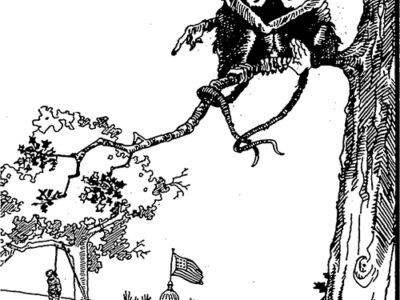MLK Social Justice Lecturer Dorothy Roberts criticizes the Supreme Court’s colorblind ideology for enabling racism in new forms but with similar effects.
In the University’s 23rd Annual Reverend Dr. Martin Luther King Jr. Social Justice Lecture in January, Penn Integrates Knowledge Professor Dorothy Roberts offered both a bracing summary of the efforts required to gain passage of the Civil Rights Act of 1964 and contended that the landmark legislation has failed to achieve the vision that King and others dreamed of 60 years ago. Her remarks have been slightly condensed and edited. —JP
“It took a mass movement like never before, entailing sustained organizing, marches, boycotts, strikes, sit-ins, rallies, arrests, jailings, beatings, an inspiring host of brilliant leaders, and tens of thousands of everyday dedicated women, men, and children, many of whom were murdered, to topple Jim Crow and usher in civil rights. That’s how important the Civil Rights Act of 1964 is. But like the victory over chattel slavery, the civil rights victory over Jim Crow was met by powerful efforts to reinstate white domination in new forms. …
One of the reasons that civil rights have failed is the false view that in the passage of the civil rights laws, the civil rights movement did achieve all its aims. The US Supreme Court makes the civil rights era the dividing line in its jurisprudence on racial equality. It treats the 1960s civil rights acts as if they vanquished completely state racism in America. According to this view, apart from aberrational acts of overt prejudice by individual officials, the new civil rights ethos has purged the government of its white supremacist past. In its 2013 decision in Shelby County v. Holder, for example, the Court struck down a key provision of the Voting Rights Act on grounds that it was no longer needed to protect against racist barriers to political power.
A majority of Supreme Court justices embrace a colorblind political ideology, a key post-civil rights strategy developed by conservatives to preserve white domination and laws that appear race-neutral on their face. …
The Court’s recent decision striking down the use of race in university affirmative action programs is grounded in this colorblind ideology. It holds that because the civil rights laws put people of color and white people in positions of full equality, social policies that take race into account constitute unconstitutional race discrimination. So the Court strikes down race-conscious remedies aimed at mitigating structural racism, while it upholds policies that are race-neutral on their face but, in fact, subordinate Black and other communities of color.”




